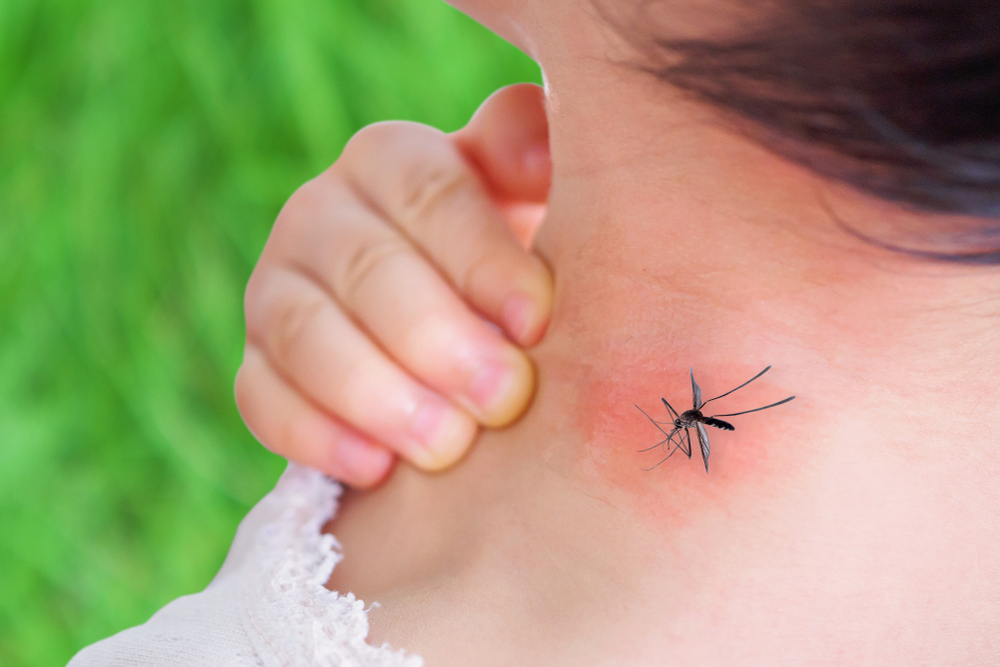The rainy season is finally upon us. While this may be good considering the long and very dry summer we had, the rainy days also indicate the peak of dengue infection.
According to the World Health Organization, the incidence of dengue has grown dramatically. As of 2019, it is estimated that there are 390 million cases of dengue infections per year. In the Philippines, the Department of Health (DOH) has already declared a national Dengue epidemic in August, with 5,100 cases reported per week and 622 deaths since January 2019. This is already 98% higher compared to the cases recorded the previous year.
With mosquitoes nesting and breeding in areas with still water (puddles, water containers, and ponds), it is expected that the number of dengue cases will rise during the rainy season.
What is Dengue Fever?
Janice C. Caoili, M.D., head of MakatiMed’s Infectious Disease Section, states that “dengue is a self-limited disease with a mortality rate of less than 1%. However, the severe form of dengue can that can be fatal, especially when it is not properly appropriately managed.”
Dengue fever is a viral infection that is transmitted through the bite of an infected mosquito. The infection can be hard to detect since the disease manifests its signs and symptoms 4 to 7 days after a person is bitten and symptoms are non-specific.
Patients who have caught the illness commonly experience the following:
- High fever that enters in separate waves
- Headache
- Pain behind the eyes
- Muscle, joint, and bone pain
- Skin rashes described as flat, reddish spots
Dengue Symptoms
Those who have caught the illness commonly experience flu-like symptoms including sudden high-grade fever, generalized fatigue, headache, pain behind the eyes, muscle, joint and bone pains, nausea, vomiting, and poor appetite. Some present with flushed skin or rashes described as flat, reddish spots.
Classification and Management of Dengue
Dr. Caoili also mentions that among those with dengue “when warning signs and symptoms of severe dengue are not recognized early and management is delayed, life-threatening complications of dengue may develop.”
The WHO recommends classifying individuals with dengue based on the severity of symptoms to determine who would benefit from more aggressive medical therapy.
A presumptive diagnosis of dengue can be made among those presenting with fever and two of the following: nausea or vomiting; rash; headache, eye pain, muscle ache, or joint pain; leukopenia; low white blood cell count in a complete blood count test; and positive tourniquet test. Diagnosis can be established by determining the presence of dengue viral nucleic acid or viral antigen (e.g., Dengue NS1) from a blood sample. The presence of dengue IgM can also be used to strengthen the diagnosis of dengue in an individual with suspected dengue.
Individuals with presumptive or confirmed dengue should be carefully assessed for the presence of warning signs. These are abdominal pain or tenderness, persistent vomiting, abdominal pain or tenderness, clinical fluid accumulation (in the lungs or abdomen), mucosal bleeding, lethargy or restlessness, enlarged liver, and an increase in hematocrit with a rapid decrease in platelet count.
Dengue patients with warning signs should be admitted to the hospital for closer monitoring and proper management. They should be regularly assessed for the development of severe dengue. Patients with severe dengue will present with shock or respiratory distress from fluid accumulation, severe bleeding or severe organ involvement leading to organ failure and death in about 50% of affected individuals. With proper management, death from dengue hemorrhagic fever is decreased to 2-5%.
Dengue Treatment
There is no specific treatment for dengue and the management of those diagnosed with dengue is mainly supportive. The majority of those who get ill with dengue who do not have any warning signs and are able to eat and drink adequately could be managed safely in the outpatient setting. They should take plenty of fluids to avoid dehydration and follow instructions of their doctors regarding medications to take for symptoms like fever and body pains. If they develop any of the warning signs, they should consult immediately.
For those with dengue and with warning signs, the WHO and Philippine DOH strongly recommend that they should immediately seek consult to prevent progression of their disease.
Preventing Dengue Fever
According to Dr. Caoilio, the virus isn’t spread from person to person, so you don’t need to worry about it being contagious. To protect yourself from getting dengue, your main line of defense is a clean environment.
The DOH urges everyone to practice the Enhanced 4-S strategy in their homes and communities.
Search and destroy mosquito-breeding sites
- Mosquitoes breed in ponds, puddles, and most importantly, in stagnant water. The eggs of mosquitoes can survive in small containers such as discarded plastic bags, soda cans, bottles, and any water-filled container. .
- Properly discard trash that accumulates water. Drain and scrub containers that are not being used. Cover your water containers. Change the water in your flower vases and plant pots regularly, and make sure that all your drains are cleaned, unclogged, and working properly.
Secure self-protection measures
- Wear pants and clothes with long sleeves so your arms and legs are protected from bites.
- Use insect repellant containing 20-30% DEET or 20% picaridin.
- Use a mosquito net when sleeping and secure your homes by installing window screens to keep mosquito out.
Seek early consultation
- If you have a fever and you want to know if you have dengue, consult a doctor. If you are diagnosed with dengue, follow the recommendations of your doctor to prevent further complications.
Support fogging/spraying only in hotspot areas
- Hotspot areas are places where there is an increase in dengue cases for two consecutive weeks. Fogging or spraying in these areas will help prevent an outbreak.
Stay safe and healthy
Prevention is the best cure. Stay safe from dengue by practicing the Enhanced 4-S strategy of the DOH. Be aware of the signs and symptoms of dengue and consult early to avoid complications.
For more information, contact MakatiMed. Our healthcare team is always ready to assist you.









